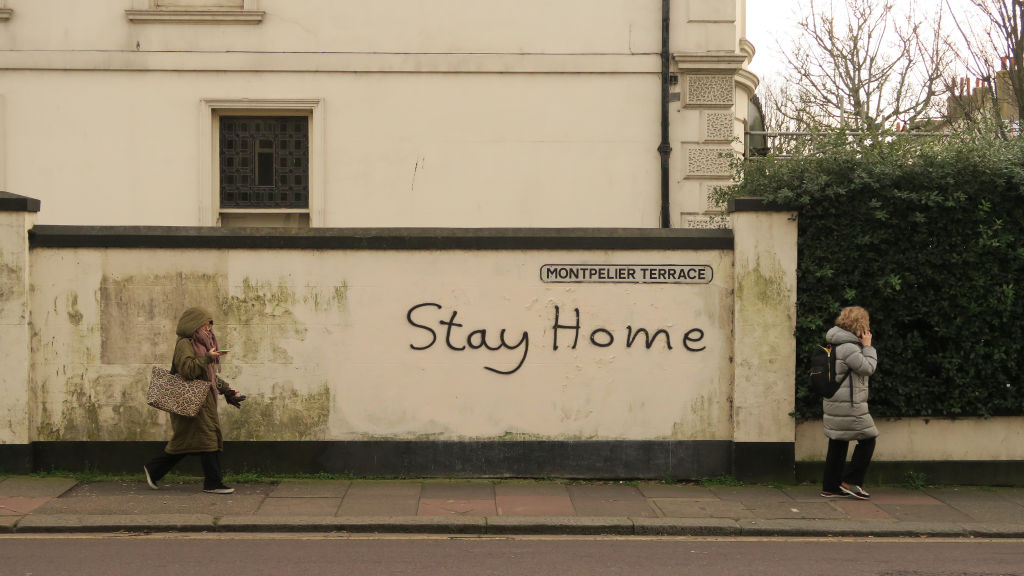Dr Siobhan McCarthy, clinical Psychologist reflects on what to expect after the lockdown.
1. How would you define happiness?
Happiness can be defined as an internal pleasant state that tells us we are not under threat and we are enjoying our space. Happiness is not a permanent state of being as all emotions are transient. So happiness as an objective in one’s life is unattainable. Instead we could aim to try to be more happy than not.
2. Is there a danger in thinking “if xyz happens, I will be happy”?
Happiness is an emotional state of being. Certain events can create feelings of happiness or joy, but they, like all emotions, will be short lived. There are certain things we know will not provide happiness in the long-term, such as money. The evidence is clear there is very little correlation between happiness and money once you go beyond the minimum wage. Happiness or contentment is more likely to be present and longer lived by having good supported and connected relationships and trying to live a life that is in line with our values and beliefs.
3. Is there a risk that putting too much emphasis on the end of lockdown being amazing could result in anxiety and depression?
In terms of the end of lockdown I think it is likely most people have mixed feelings. Some will be joyfully looking forward to the added freedom they will be offered and others may be feeling uncertain and unsure about what change represents as all change is stressful, even good change. Any time we introduce expectations there is always a risk that we could be disappointed. The truth is we really don’t know what the end of lockdown will bring and the reality is it will probably bring a mixture of opportunities and anxieties. If we can keep the balance between these two concepts or at least the idea that these two concepts can occur together, the expectation of joy and the reality of uncertainty and some disappointment, we are more likely to be psychologically resilient, because the truth is often somewhere in the middle.
4. How to cope with the pressure to enjoy the end of lockdown and to avoid feeling of FOMO at the end of lockdown
Do you think there is a risk of more people experiencing FOMO after lockdown restrictions lift if they feel they are not having ‘enough fun’?
For some people, the lockdown has been restrictive and isolating and they will experience the relief of having more freedom to have contact with other people, thus it being a positive thing for them by in large. Whether people may experience disappointment islargely to do with what they expect. If they can hold expectation that includes both joy and uncertainty, they probably will not feel disappointed.
If you believe the social media image of everybody out having an amazing time then you can be pulled into feelings of FOMO. Nobody posts pictures of times when they feel just miserable and alone, yet this is a normal part of life for everyone. Hence why social media is a distortion of reality. For others, the end of lockdown can mean the loss of a quieter and slower pace of life which for many has been restful and rejuvenating. But as people look to celebrate the end of lockdown and they post their end of lockdown experiences it is entirely possible this can reawaken insecurities in people and leave them feeling demoralised or to experience FOMO. I think a wise person will probably take the good bits of lockdown and try to integrate it permanently into their lifestyles, slowly reintroduce socialising so they find the right level for themselves and to resist getting sucked into social media images.

5. How to cope with the pressure to enjoy the end of lockdown and to avoid feeling of FOMO at the end of lockdown
Do you think there is a risk of more people experiencing FOMO after lockdown restrictions lift if they feel they are not having ‘enough fun’?
For some people, the lockdown has been restrictive and isolating and they will experience the relief of having more freedom to have contact with other people, thus it being a positive thing for them by in large. Whether people may experience disappointment islargely to do with what they expect. If they can hold expectation that includes both joy and uncertainty, they probably will not feel disappointed.
If you believe the social media image of everybody out having an amazing time then you can be pulled into feelings of FOMO. Nobody posts pictures of times when they feel just miserable and alone, yet this is a normal part of life for everyone. Hence why social media is a distortion of reality. For others, the end of lockdown can mean the loss of a quieter and slower pace of life which for many has been restful and rejuvenating. But as people look to celebrate the end of lockdown and they post their end of lockdown experiences it is entirely possible this can reawaken insecurities in people and leave them feeling demoralised or to experience FOMO. I think a wise person will probably take the good bits of lockdown and try to integrate it permanently into their lifestyles, slowly reintroduce socialising so they find the right level for themselves and to resist getting sucked into social media images.


